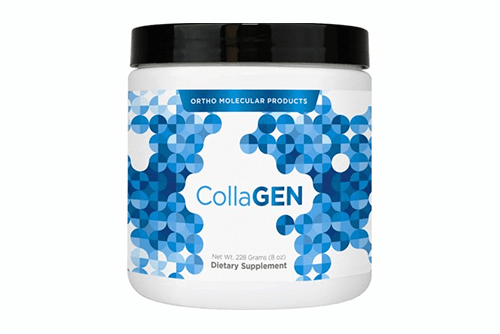Do you ever wonder how and why our youthful plumb skin begins to sag as we get older? Or why do our joints ache and groan every time we get up from a chair? We know that the answer to this is aging, a natural phenomenon of life. But how does aging contribute to these inconveniences? The answer to these questions is collagen.
WHAT IS COLLAGEN, AND WHERE IS IT IN THE BODY?
Collagen is the most abundant protein present in the body and the primary component of the body’s connective tissues. It is fibrous and insoluble, providing strength to the skin, hair, cartilage, and bones.
Its fundamental structure is comparable to a rope. Imagine many small ropes intertwining to form a thicker rope; this is the final form of collagen. And it is this structure that gives collagen its strength and ability to withstand tensile forces.
There are at least 16 types of collagen present in the body. However, the three most common ones are:
- Type I: present in the skin, tendons, bones, and internal organs.
- Type II: present in joint cartilage.
- Type III: found in the bone marrow and lymphoid tissues.
Type 1 collagen is the most abundant collagen present in the body.
It is present within the middle layer of the skin, maintaining the skin barrier and giving it that youthful suppleness.
WHERE DOES COLLAGEN COME FROM?

Collagen comes from wherever protein comes from, and that is food. Consuming protein-rich foods provides the body with resources to produce collagen. Protein-abundant foods include meat, seafood, dairy, legumes, whole grains, and nuts. A few fruits and vegetables have a high protein content, such as spinach, broccoli, asparagus, guavas, avocados, apricot, and kiwi fruit.
These protein-rich foods provide our body with the vital ingredient necessary for collagen formation, amino acids. Fibroblasts are cells that utilize amino acids to produce collagen protein.
In addition to protein, vitamin C and magnesium are two essential micronutrients necessary for collagen synthesis. Thus consuming foods plentiful in these micronutrients will also boost collagen content.
FACTORS INFLUENCING COLLAGEN CONCENTRATION IN THE BODY
As we age, our body’s ability to produce collagen decreases; this is an unavoidable fact. Genes also determine how fast collagen degrades over time. However, other factors may lead to the decreasing content of collagen in the body. The following factors may accelerate the decline of collagen; by inhibiting collagen production or prematurely degrading it.
- excessive sun exposure
- smoking
- environmental pollutants
- alcohol abuse
- nutritional deficiency or a poor diet high in sugars
Due to the loss of collagen, the skin loses its structural integrity and elasticity. It becomes thinner, drier, and lines and wrinkles begin to emerge. Joints are affected as well; the cartilage weakens, resulting in aches, pain, and prone to injury.
For women, menopause is a significant contributor to the dramatic reduction in collagen synthesis. The loss of estrogen increases susceptibility to inflammation, impairs wound healing and collagen synthesis.
THE IMPORTANCE OF COLLAGEN SUPPLEMENTS
Even though protein-rich foods provide our body with the right ingredients to make collagen; however, it does not provide our body with an uninterrupted supply of amino acids. Amino acids derived from food are also used to produce various other proteins in the body, leaving behind a few amino acids for collagen synthesis.
For this reason, it is essential to consume collagen supplements. These supplements contain concentrated collagen, thus providing our body with a reliable and readily available form of collagen. Collagen supplements come in many forms, such as capsules, tablets, and powders.
Collagen supplements can:
- Increases elasticity and hydration of the aging skin
- Increases the strength of nails
- Relieves joint pain related to osteoarthritis by stimulating regeneration of collagenic tissue
- Promotes wound healing
- Increases bone density by inhibiting the breakdown of bone
- Maintains cardiovascular health: prevents fat deposition within blood vessels (atherosclerosis), hence, preventing a stroke or heart attack
WHY YOU SHOULD OPT FOR COLLAGEN SUPPLEMENTS

The process of aging is unavoidable. And for women, menopause is imminent. These sequential biological processes collectively lead to the loss of collagen, an unfortunate yet natural course of life.
However, we can take control of this course, preventing or recovering from this loss. For any woman going through menopause, taking collagen supplements is like killing two birds with one stone. After menopause, the risk of osteoarthritis increases. Therefore along with improving skin health, collagen supplements will also keep your joints healthy. Furthermore, atherosclerosis also accelerates after menopause, which is something that collagen supplements can help with. Ok, so maybe more than two birds. If you are not sure where to start, here
is a collagen powder supplement. It also contains magnesium and vitamin C, ensuring that you have all the necessary elements for collagen production.

